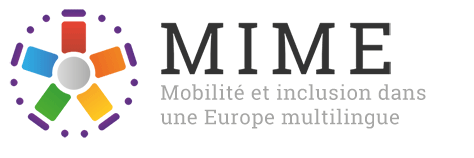O
ur consortium will seek advice from a group of advisors with three main functions, essentially centred on providing comments and guidance, and facilitating contacts where required. Advisory Board members will be invited to attend and actively take part in the project’s yearly consortium meetings and Stakeholder Forum meetings, in order to follow the overall progress of the project, directly interact with all the partners at regular intervals, and provide regular comment and suggestions on the matching of the project’s activities and its long-term objectives. 
Advisory Board members will be kept informed of project activities throughout the duration of the project. This will give them opportunities to react and comment, to advise on its overall progress and to offer opinions to the Project Coordination Team regarding the project’s scientific and strategic orientations.

They will be in contact with project partners, on an informal bilateral basis, to offer suggestions regarding specific theoretical and empirical questions, which may arise in the course of the research work.

Advisory Board members are also expected to support the project by facilitating contacts, particularly in order to broaden the scope of the project’s comparative work.
MIME is privileged to be able to count on the support of a remarkably high-level advisory board comprising the following personalities.
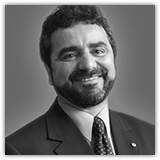
Joe LoBianco
Joe LoBianco holds the chair of Language and literacy education at the University of Melbourne in Australia. His most public field of expertise is in the description and analysis of language policies at the national level, but he is also a practitioner of language policy-making with extensive consultancy experience in this regard, and has in-depth experience of micro-level sociolinguistic processes in large range of language contact situations. He has published extensively on multiculturalism, Asian studies and Italian language and cultural history. He is President of the Asian Pacific Forum on Translation and Intercultural Studies at Tsinghua University in Beijing, and Immediate Past President of the Australian Academy of the Humanities. In 1987, he wrote the National Policy on Languages (NPL) for the Australian Federal government, which is acknowledged as the first multilingual policy in an English- dominant nation. The NPL addressed aboriginal, immigrant and international languages in the justice, education and health fields; Professor Lo Bianco has chaired and directed the National Languages Institute of Australia for ten years. He is currently directing a language policy research project funded by the Government of the Netherlands grant to UNICEF in Myanmar/Burma, Thailand and Malaysia.
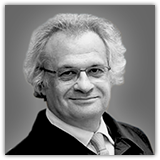
Amin Maalouf
Born in Beirut in 1949, Amin Maalouf has lived in France since 1976. After studying sociology and economics, Maalouf worked as a journalist for a Lebanese daily, before having to emigrate because of the Lebanse civil war. He settled in Paris and, while pursuing journalism, moved on to literature. His novels, essays and opera librettos, written in French, are translated today into more than 40 languages, and issues of multiculturalism and dialogue between cultures are one of the recurring themes of his writing. Mr Maalouf has also been the chairman of the working group appointed by former European Commissioner Leonard Orban who produced the report on multilingualism entitled "A Rewarding Challenge"
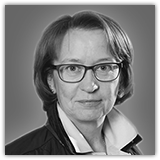
Tove Malloy
Tove Malloy is Director of the European Centre for Minority Issues (ECMI, Flensburg, Germany), Associate Professor at the University of Southern Denmark and visiting Professor at Flensburg University. A political theorist by training, she specialises in the political and legal aspects of national and ethnic minority rights in international law and international relations, especially in the European context. Her areas of expertise cover the major international organisations, the European Union as well as individual countries; she has been called upon for expert advisory opinions by local and national governments, the Council of Europe, the OSCE and the European Commission. She is currently the member from Denmark of the Advisory Committee on the European Framework Convention for the Protection of National Minorities. Her research has been funded by the European Commission, governments and private foundations, and she functioned as Director of the FP6 project MIRICO. In addition to her academic career, Dr. Malloy has served in the Danish Foreign Service in numerous positions and represented the Danish Government in international fora on post-conflict resolution, transition and development as well as on indigenous affairs issues. Dr. Malloy is the author of National Minority Rights in Europe (OUP, 2005) as well as numerous articles about minority issues. She holds a PhD in Government from the University of Essex (UK).
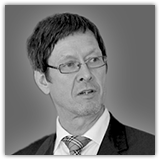
Tom Moring
Tom Moring is Professor of Communication and Journalism at the University of Helsinki. His research and publications focus on minority languages and the media, political communication, and broadcasting. He participated in the DYLAN project (FP6/EU) as the leader of a comparative Nordic research task, and has worked together with MIME project coordinator on earlier research projects for the Finnish Academy of Sciences, and as co-director of the SMiLE project (Support for Minority Languages in Europe) commissioned by DG EAC. He has a background as Secretary General of the European Bureau for Lesser Used Languages and member of the Committee of Experts of the European Charter for Regional or Minority Languages. He also holds a part time position as Professor II in Journalism at the Sami University College in Kautokeino, Norway, reflecting his expertise in the sociolinguistics of media production and consumption.

Tom Ricento
Tom Ricento is the first North American Research Chair in English as an Additional Language. His Ph.D. is in Applied Linguistics from the University of California, Los Angeles. Prior to his current position at the University of Calgary, he was Professor in the Department of Bicultural-Bilingual Studies, University of Texas, San Antonio (USA). He has published widely in the field of language policy and planning and language ideologies, with special attention to language minority communities in North America and the sociolinguistic dimensions of their social inclusion in macro, meso and micro-level terms. He has been a visiting professor and invited speaker at various European universities, including Southampton, Geneva, Vigo, U. of the Basque Country, Salamanca, Oslo and Hamburg. He is founding co-editor of the Journal of Language, Identity, and Education and serves on the Editorial Advisory Board of five international academic journals. He has served on the Executive Committee of the American Association for Applied Linguistics, and most recently was co-recipient of the TESOL Distinguished Research award. He has received research grants from the National Endowment for the Humanities (USA) and the Russell Sage Foundation (USA), among other funders, and was twice a Fulbright scholar (Colombia (1989) and Costa Rica (2000)). His current research focuses on the political economy of English as a global language, and on the social and economic integration of refugees in Canada.
In addition, and in order to facilitate continuity with research on multilingualism carried out by others with European Commission support, the Project coordination team benefits from the experience and knowledge of Prof. Dr. Wolfgang Mackiewicz.
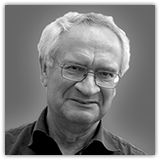
Wolfgang Mackiewicz
Prof. Dr. Mackiewicz, from the Freie Universität Berlin, has in-depth knowledge of European research policy and extensive experience in research on European multilingualism. In this capacity of providing advice and counsel, Prof. Dr. Mackiewicz will be able to draw the attention of the project coordination to relevant developments in the European Commission's strategy regarding research on multilingualism, diversity, and integration.
